Alumni Profiles
Fall 2024
From leading the Alumni Association to improving public communication of science, these alumni are making an impact.

Leading Alumni
Dr. Anthony Rossi
Dermatologist, Assistant Attending Physician at Memorial Sloan Kettering Cancer Center
Dr. Anthony Rossi (M.D. ’08), a dermatologist and assistant attending physician at Memorial Sloan Kettering Cancer Center (MSK), attributes much of his professional success to the mentorship he received at Weill Cornell Medicine. Now, as the new president of the Alumni Association, he is committed to fostering this culture of mentorship among students and alumni.
“As medical students, you’re used to doing so many things on your own — you just put your nose down and work,” says Dr. Rossi, who is also an assistant professor of dermatology at Weill Cornell Medicine. “But the right mentor can not only open a lot of doors for you, they can also remove a lot of hurdles because they’re leading you down a path they’ve already forged.”
Dr. Rossi specializes in Mohs surgery for skin cancer and noninvasive laser and light-based dermatological therapies. He is also active in clinical research. Recently, his team conducted a clinical trial investigating the use of platelet-rich plasma derived from a patient’s own blood to stimulate hair growth in women with breast cancer experiencing chemotherapy or endocrine-induced hair loss.
Dr. Rossi credits his experience at Weill Cornell Medicine with nurturing his entrepreneurial spirit, including the development of his own skin care line, Dr. Rossi DERM MD.
“We were one of the first schools to implement problem-based and small-group learning, which flipped the paradigm on how medicine was taught,” says Dr. Rossi. “This helped me think through and solve problems in a different way.
“There weren’t products that addressed the early aging process in cancer patients without containing allergens that could further irritate their skin, so I set out to develop my own skin care formula,” he says.
“A lot of our students and alumni are innovative thinkers who want to think beyond the traditional clinical setting,” Dr. Rossi adds. “As president, and a fellow entrepreneur, I am looking forward to engaging this group and bringing them together to create synergies.”
Dr. Rossi also plans to emphasize diverse representation in the activities of the Alumni Association and aims to create more opportunities for recent graduates to connect with alumni who are further along in their careers.
“When you’re going through residency, it’s a tough and challenging time and you can lose sight of the big picture because you’re so entrenched in the day-to-day minutia. Having a sounding board that can provide a 30,000-foot view is invaluable because it can keep you going.”
— Aviva Meyerowitz

Communicating Science
Dr. Cynthia Leifer
Professor of Immunology, Cornell University
In January 2015, Dr. Cynthia Leifer (Ph.D. ’00), professor of immunology at Cornell University, wrote her first scientific op-ed for CNN. The piece, on the importance of childhood vaccines following a measles outbreak at Disneyland, highlighted Dr. Leifer’s extensive experience in immunology and underscored her belief that science communication is vital for public health.
“We all have a responsibility to not only communicate what we do, but also the importance of what we do, to the public,” she says.
Since then, Dr. Leifer has published multiple articles in mainstream media outlets on topics such as vaccine hesitancy and science denial and has been interviewed as a scientific expert. She also teaches workshops on scientific communication, co-hosts the podcast “Immune,” and became a leading public voice on vaccines during the COVID-19 pandemic.
“I’m always thinking about how I can use my skills to make a greater impact. So, when the pandemic hit, I felt that this was a great chance to do that,” says Dr. Leifer.
In May, Dr. Leifer received the Weill Cornell Graduate School Alumni Award of Distinction which recognized the broad impact of her work in immunology, science communication, mentoring students and empowering women and diverse faculty.
At Cornell, she oversees a program of approximately 100 graduate and postgraduate students, helping them navigate school, find their “lab homes” and tackle stress.
“They all think that there’s this one path, and that all principal investigators got there because they had this amazing trajectory. I like to remind them that not everybody follows the same path,” she says.
Dr. Leifer also runs the Cornell Rising Star program, which helps postdoctoral scientists from historically underrepresented communities prepare to interview for faculty positions at universities nationwide. Many of these young professionals might not otherwise have easy access to necessary information or networks to facilitate this process.
“We thought, ‘Well, if we can offer this programming, that might really help,’” Dr. Leifer says. “And it has.”
— Aviva Meyerowitz

Supporting Cancer Research
Dr. Ann Partridge
Vice Chair of Medical Oncology, Dana-Farber Cancer Institute; Director, Adult Survivorship Program at DFCI and Brigham and Women’s Hospital
Dr. Ann Partridge (M.D. ’95), vice chair of medical oncology at Dana-Farber Cancer Institute (DFCI) and director of the Adult Survivorship Program at DFCI and Brigham and Women’s Hospital in Boston, was a second-year fellow in hematology-oncology when her best friend was diagnosed with breast cancer, at age 29. It was challenging.
“Here was this beautiful young woman who was making life-changing decisions and asking important questions. And I realized there was not a lot of research to inform her choices,” recalls Dr. Partridge.
Her friend’s experience became the catalyst for Dr. Partridge’s lifelong work with cancer and young adults. First, she created Young and Strong, a comprehensive program for young adults diagnosed with breast cancer. Since its establishment in 2005, the program has helped more than 8,500 young adults, providing multidisciplinary care, support and education on topics like genetic testing, fertility, intimacy and healthy living, and offering research studies to improve their treatment.
“We have all of these clinical touchpoints throughout their journey and have lowered barriers to things like fertility preservation and other related services,” says Dr. Partridge, who directs the program.
Later, in 2006, she launched the Young Women’s Breast Cancer Study, the first multi-institutional cohort research study of its kind in the United States. The study has enrolled more than 1,300 women under 40, tracking medical and psychosocial issues — from diagnosis through treatment and into survivorship. It also created a biobank of blood and tissue samples to study the genetic risk factors and unique biology of breast cancer affecting young women.
Recently, the American Cancer Society gave Dr. Partridge a clinical research professorship award to expand research on young adults with all types of cancer, who often face more severe disease and worse outcomes than older cancer patients.
“We need to support the next generation of researchers to home in on issues that have an impact on all adolescent and young adult cancers,” says Dr. Partridge. “The numbers for these diseases are increasing, and we don’t completely understand why. We must improve treatments, care and outcomes for these patients.”
— Aviva Meyerowitz
Photo: Michael Marquand; Portraits: Nigel Buchanan
Fall 2024 Front to Back
-
From the Dean

Message from the Dean
By integrating innovations in artificial intelligence into clinical practice, the aim is to enhance, rather than replace, the personal care that patients value. -
Features
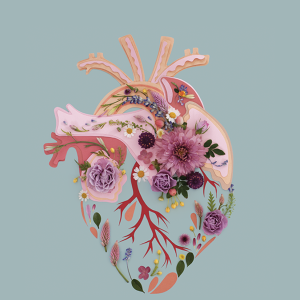
Change of Heart
To tackle long-standing sex disparities in outcomes for cardiac surgery, Weill Cornell Medicine physicians are pursuing innovative clinical trials and treatment -
Features

The Dark Side of STING
Painstaking research has yielded vital new insights on how a protein known for triggering inflammation can both hinder — and accelerate — cancer -
Features
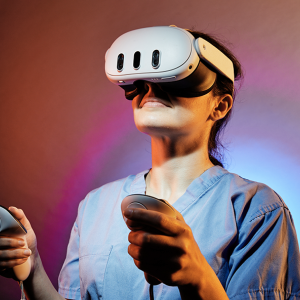
Teaching Empathy in the Digital Age
Meet C.A.R.L., a lifelike virtual “patient” who stands at the vanguard of advances in immersive learning that could improve the way doctors are trained. -
Notable

New Chair and Physician-in-Chief
Dr. Myles Wolf, who specializes in nephrology, will oversee Weill Cornell Medicine's largest clinical and academic department. -
Notable
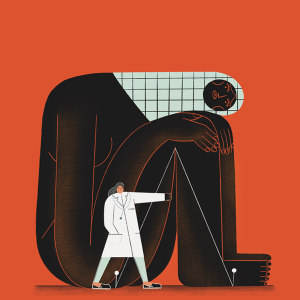
Dateline
Dr. Sasha Fahme is leading studies to better understand the sexual health challenges refugee women face. -
Notable

Overheard
Weill Cornell Medicine faculty members are leading the conversation about important health issues across the country and around the world. -
Notable

News Briefs
Notable faculty appointments, honors, awards and more — from around campus and beyond. -
Grand Rounds

Lending an Ear
How a single-sided cochlear implant is helping a psychiatry resident achieve his dreams. -
Grand Rounds

The Art of Medicine
Through visits to the Guggenheim and more, medical students are expanding their thinking to improve patient-centered care. -
Grand Rounds

News Briefs
The latest on teaching, learning and patient-centered care. -
Discovery

Unraveling the Riddle of Suicide Risk
Researchers are identifying new preventive strategies by leveraging cutting-edge computational techniques and cross-disciplinary strategies. -
Discovery

A Common Type of Fiber May Trigger Bowel Inflammation
An unexpected finding could pave the way for therapeutic diets that ease symptoms and promote gut health. -
Discovery

Findings
The latest advances in faculty research, published in the world’s leading journals. -
Alumni

Profiles
From leading the Alumni Association to improving public communication of science, our alumni are making an impact. -
Alumni

Notes
What’s new with you?
Keep your classmates up to date on all your latest achievements with an Alumni Note. -
Alumni

In Memoriam
Marking the passing of our faculty and alumni.
-
Alumni
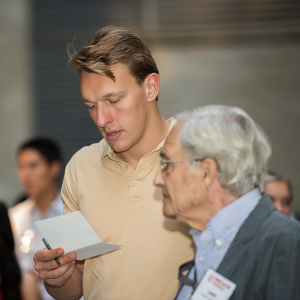
Moments
Marking celebratory events in the lives of our students and alumni, including the White Coat Ceremony and Reunion. -
Second Opinion

Taming Weed
How can medicine and public health address largely unregulated, readily available and potentially harmful marijuana products? -
Exchange
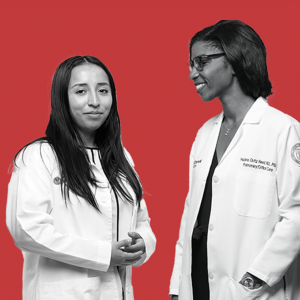
Roles in Research
A physician-scientist and a college student discuss how undergraduate research opportunities can boost the STEM pipeline of those from historically underrepresented communities. -
Muse
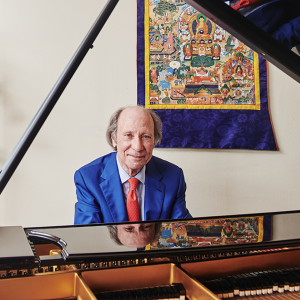
Making the Music
Clinical psychologist Dr. Robert Allan finds inspiration from composing and playing the piano. -
Spotlight
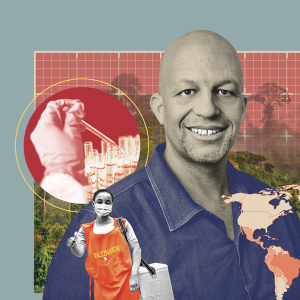
Therapeutic Advocate
In his quest to help more patients, Dr. Joseph Amprey (M.D. ‘04, Ph.D. ‘02) shifted from clinical practice to drug development.